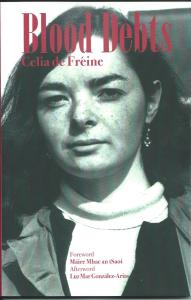
In my experience there are three phases involved in the act of writing: the writing itself; the edit and polish; the promotion.
The first phase is the most challenging – getting the idea down on paper – though, in many ways, it’s the most straight-forward. Once the writing (a poem for the purpose of this piece) has been made real, it can be toyed with on the page until it’s ready for publication. Which brings me to the second phase: the edit and polish. Many poems arrive almost fully-formed and require little ‘polish’ (these are the poems which win awards); others may take years to hone and may never quite turn out to the poet’s satisfaction.
The third phase, the promotion, is the one I’ve spent least time on over the years, choosing to focus on phases one and two. Until recently most of my energy was deployed in the writing of the poem, a lesser amount on the polish and practically none on the promotion, though it’s now that my output is greater than ever.
At first I was worried that that was because I’d run out of ideas and was spending more time on the edit, rather than on the composition. I think, though, that with practice I’ve learnt to incorporate much of the edit into the writing itself. As for the manuscripts which have languished on the shelf for years, approaching them now with the perspective distance brings, less time and energy are needed to complete the task.
As for the promotion of my two most recent books ‘A lesson in Can’t (Scotus Press, 2014) and ‘Blood Debts’ (Scotus Press, 2014), I’ve been blessed with the help of one friend, in particular, Lia Mills. Lia is an extraordinary writer in her own right whose novel ‘Fallen’ is well on its way to becoming a modern day classic. Not content with her own work, though, Lia devotes many hours to the work of other writers as evidenced by her series of interviews with them.
I will forever be in her debt for:
http://www.drb.ie/essays/hidden-irelands
‘Hidden Irelands’ her interview with me for the DRB (November, 2014),
her generous comments in The Irish Times
http://www.irishtimes.com/…/lia-mills-books-are-like-childr…
and her Foreword to my ‘A lesson in Can’t’ (Scotus Press, 2014) as discussed on Arena
http://www.rte.ie/radio1/arena/programmes/2015/0127/676024-arena-tuesday-27-january-2015/?clipid=1788231
A Wise Woman knows her friends.
Thank you, Lia.



